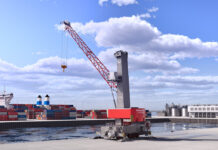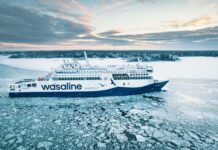
While expressing concerns regarding the Ocean Shipping Reform Act (OSRA) rules, Ports America, the largest marine terminal operator in North America, emphasised the significance of marine terminal operators (MTOs) in facilitating freight movement.
The Covid-19 pandemic, inflation, combined with labour shortages, construction disruptions and other factors have fuelled a supply chain crisis that continues to strain the capacity of the maritime transport system.
In response, Congress passed the Ocean Shipping Reform Act (OSRA) of 2022.
According to Ports America’s statement, the law sets standards that detention and demurrage charges must comply with; sets penalties for charges deemed inaccurate; allows the Federal Maritime Commission to set minimum contract standards for ocean shipping service contracts to protect United States shippers from actions that leave export cargoes stranded at United States ports; and increases protections for United States shippers from retaliation by foreign ocean carriers.
Matthew Leech, president and CEO of Ports America, which is also a member of the National Association of Waterfront Employers (NAWE), was one of the executives who appeared at the Coast Guard and Maritime Transportation Subcommittee Hearing on 29 March.
According to Leech, a shortage of capacity at maritime port property resulted from unprecedented customer demand following the Covid-19 pandemic.
To handle this, marine terminal operators (MTOs) used available tools, such as the enforcement of terminal demurrage and dwell costs, to guarantee the timely retrieval of containers from the port property while avoiding congestion problems.
“Matt Leech’s testimony reflects critical issues that impact the flow of cargo and threaten a smooth and efficient supply chain,” stated Robert W. Murray, president of NAWE.
Murray added, “MTOs employ hundreds of thousands of waterfront workers across the country and serve as the critical foundation for facilitating cargo transportation between sea and land. Congressional leaders and executive branch officials must ensure the constant flow of global commerce through the legislative and regulatory process that supports our nation’s economy.”
Leech also mentioned anti-trust immunity, which allows MTOs to organise reactions to supply chain congestion.
Finally, Leech voiced optimism that Congress will reconsider amending the Inflation Reduction Act (IRA) and Clean Ports Program to better represent the realities that MTOs confront when acquiring zero and near-zero-emission cargo handling machinery.
Leech stated, “Ports America and NAWE will continue to engage with Congress to find flexibility in the IRA to account for realistic costs, timelines, and US equipment availability in order to achieve the Act’s policy goals”.




